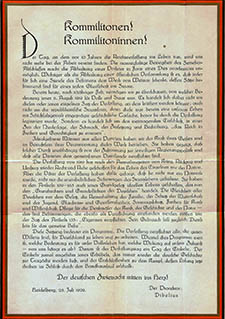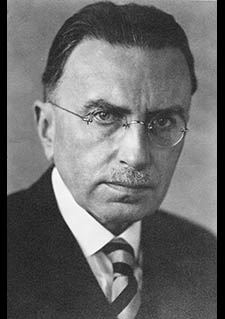The Liberals
Proponents of liberal theology such as Ernst Troeltsch, Martin Rade and Martin Dibelius endorsed the democratic form of government with its modern political categories such as parliamentary system, constitution and separation of powers, which met with only very limited approval in Protestant segments of the population.
The surge in social and economic modernization ushered in with the Weimar Republic was therefore also welcomed only by liberal theologians. The large majority of Protestant society tended to see a “diabolical” threat. Politically, the spokespersons of liberal theology were active primarily in the German Democratic Party (DDP).
These liberal theologians open to modern social currents were in the minority, however. Whereas their plea for a reconciliation of Christianity and modern culture in the Wilhelmine Empire had virtually only met with a response from liberal educated bourgeoisie, the changes to voting rights in the Weimar era made them entirely a minority within the church.
At the same time, the young theologians close to the “crisis theology” passed their verdict on their cultural Protestant fathers. Viewing World War I as an epochal threshold, Friedrich Gogarten declared in 1920: Today we are witnessing the demise of your world.
Source / title
- © Poster: Universitätsbibliothek Heidelberg; © Photo: Universitätsarchiv Heidelberg, UAH Pos I 00588


